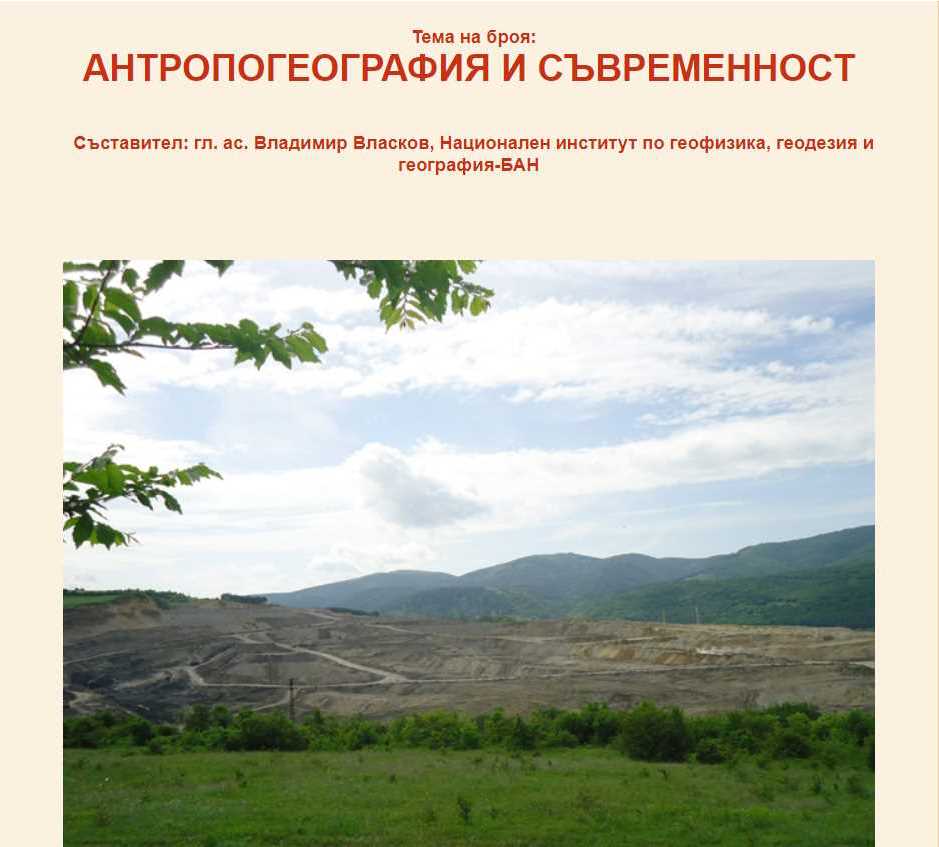ИСТОРИЯ И РАЗВИТИЕ НА АНТРОПОГЕОГРАФИЯТА ВЪВ ВОДЕЩИТЕ ГЕОГРАФСКИ ШКОЛИ И БЪЛГАРИЯ
History and development of the anthropogeography in leading geography schools and in Bulgaria
Author(s): Velimira Stoyanova, Gergana MetodievaSubject(s): Anthropology, Social Sciences, Geography, Regional studies, Human Geography, Regional Geography, Historical Geography, Applied Geography, Sociology, Cultural Anthropology / Ethnology, Culture and social structure
Published by: Асоциация за антропология, етнология и фолклористика ОНГЬЛ
Keywords: geographical determinism; geographical possibilism; geography schools; social geography; economic geography;
Summary/Abstract: The article presents a brief history and the development of anthropogeography in leading geographic schools and in Bulgaria. By the end of the 19th and in the early 20th century geographers around the world put the human in the focus of the geographical research and started studying the connections and relations between people and the natural components (terrain, climate, water, etc.). In 1882, following the publication of the Ratzel’s work titled - "Anthropogeography" the foundations of a new branch in the system of geographical sciences were laid, which was called "anthropogeography" ("human geography"). Today more and more frequently in Western Europe, the USA etc. Germanic and Romance languages-speaking countries, along with the concept of anthropogeography, the synonymous term "human geography" is used (in German - Die Humangeographie , in Spanish - geografía humana, in Italian - geografia antropica, in French - géographie humaine, etc.). It is perceived as a science studying the spatial organization of the economy and the relations between the society and the environment. General anthropogeography is divided into: geography of the population; historical geography; political geography; geography of settlements - urban geography and geography of rural areas; social geography; economic geography - primary, secondary and tertiary sectors; cultural geography, geography of the religions. In Bulgaria and in other former socialist countries (Russia, Poland etc.) neither of the two terms - anthropogeography and human geography are used. Instead, the term socioeconomic geography (social and economic geography, economic and social geography) is used, which includes social geography - geography of the population and settlements; economic geography - primary, secondary and tertiary sector etc. In leading geography schools: the German ("Anthropogeography"), the French (sociogeography - "Human Geography"), the Anglo-American and the Russian, different approaches for characterizing and analyzing the interaction between nature and man are used. The basic approach used in the German geography school since the end of the 19th till 186 the mid-20th is connected with the so-called geographical determinism (from Latin determinare - "define"). In France, unlike Germany, the main approach used in studying the interaction between man and nature is that of the so-called geographical possibilism (from Latin possibilis – “possible”). Geographers from the Anglo-American school basically adopted the ideas of the German geographical determinism, but also some of the ideas of the French geographical possibilism. Conditionally speaking, the anthropogeographical research in Bulgaria can be divided into three periods: the first period – the period of the Bulgarian Renaissance until the late 19th century, the second period - from the late 19th century to the mid-1940s, and the third period - from the mid-1940s to the mid-1950s.
Journal: Електронно списание »Онгъл«
- Issue Year: 2015
- Issue No: 11
- Page Range: 174-188
- Page Count: 15
- Language: Bulgarian

